Skin Care Simplicity
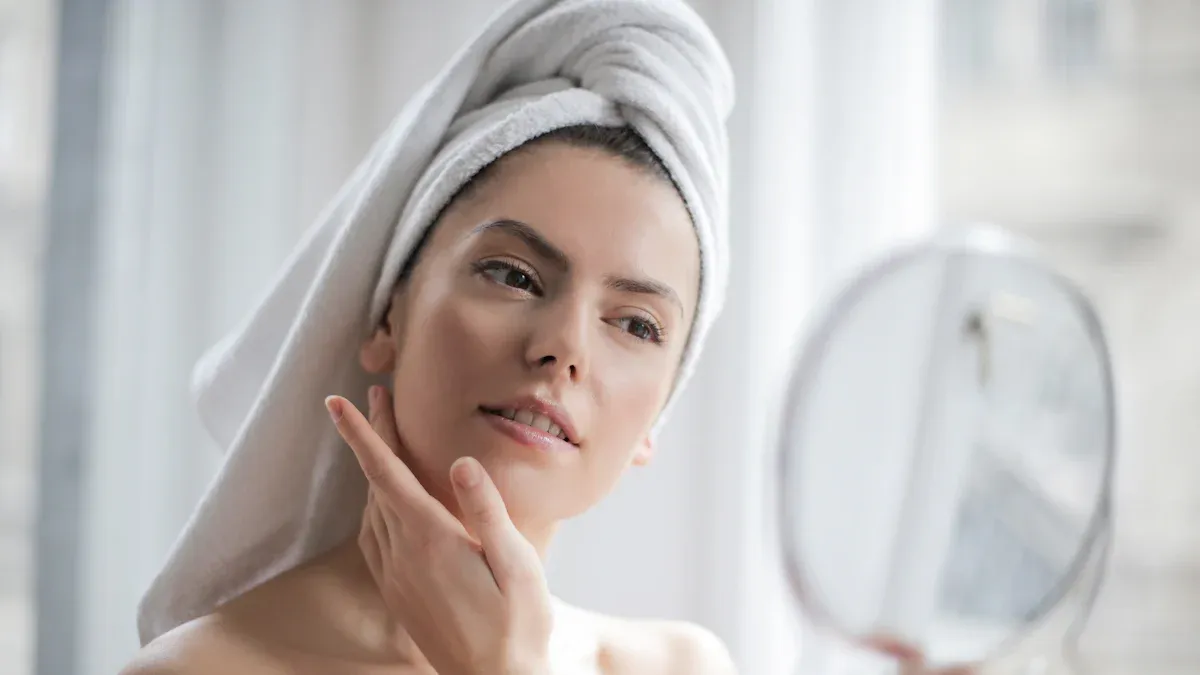
Does your skincare routine feel more like a marathon than self-care? You're not alone. Many people juggle an average of five products in the morning and evening, spending over 22 minutes daily. While this might seem thorough, it often leads to confusion, irritation, and wasted time. A minimalist approach—fewer, high-quality products tailored to your needs—can transform your skin. Simple skin care is best because it supports your skin's natural balance without overwhelming it. By avoiding harsh chemicals and unnecessary fragrances, you can achieve healthier, more radiant skin with less effort.
Key Takeaways
Keeping your skincare routine simple can make your skin healthier. Use fewer, good-quality products that suit your skin type.
A simple routine saves both time and money. Using fewer products helps prevent irritation and gives better results.
Picking eco-friendly and multi-purpose products helps your skin and nature. Choose sustainable items to create less waste.
The Pitfalls of Overcomplicating Skin Care
Incompatible Ingredients and Skin Sensitivities
Have you ever wondered why your skin feels irritated despite using high-end products? The truth is, layering too many products can do more harm than good. Research shows that people with sensitive skin often experience redness and breakouts when they follow multi-step routines. Mixing incompatible ingredients, like retinol and vitamin C, can trigger irritation instead of delivering results. Celebrity aesthetician Renee Rouleau explains that piling on products doesn’t amplify their benefits. In fact, the first few steps are usually the most effective. Keeping it simple lets your skin breathe and reduces the risk of unwanted reactions.
Financial and Environmental Costs of Excessive Products
Skin care isn’t just about your face—it impacts your wallet and the planet too. Did you know American women spend an average of $3,756 annually on beauty products? That’s over $10 a day! Men aren’t far behind, spending nearly $2,928 each year. The beauty industry generates $48.8 billion, but it comes at a cost. Packaging waste from beauty products contributes to 120 billion units of trash every year, much of which ends up in landfills. The demand for natural oils also leads to deforestation and soil damage. By choosing fewer, multi-use products, you can save money and reduce your environmental footprint.
Unsustainable and Time-Consuming Routines
Do you feel like your skincare routine takes forever? You’re not alone. Overcomplicated routines can eat up your time and energy, making them hard to stick to. A minimalist approach is not only quicker but also more sustainable. When you simplify your routine, you’ll find it easier to stay consistent and achieve better results. Less really is more when it comes to skincare.
Why Simple Skin Care is Best
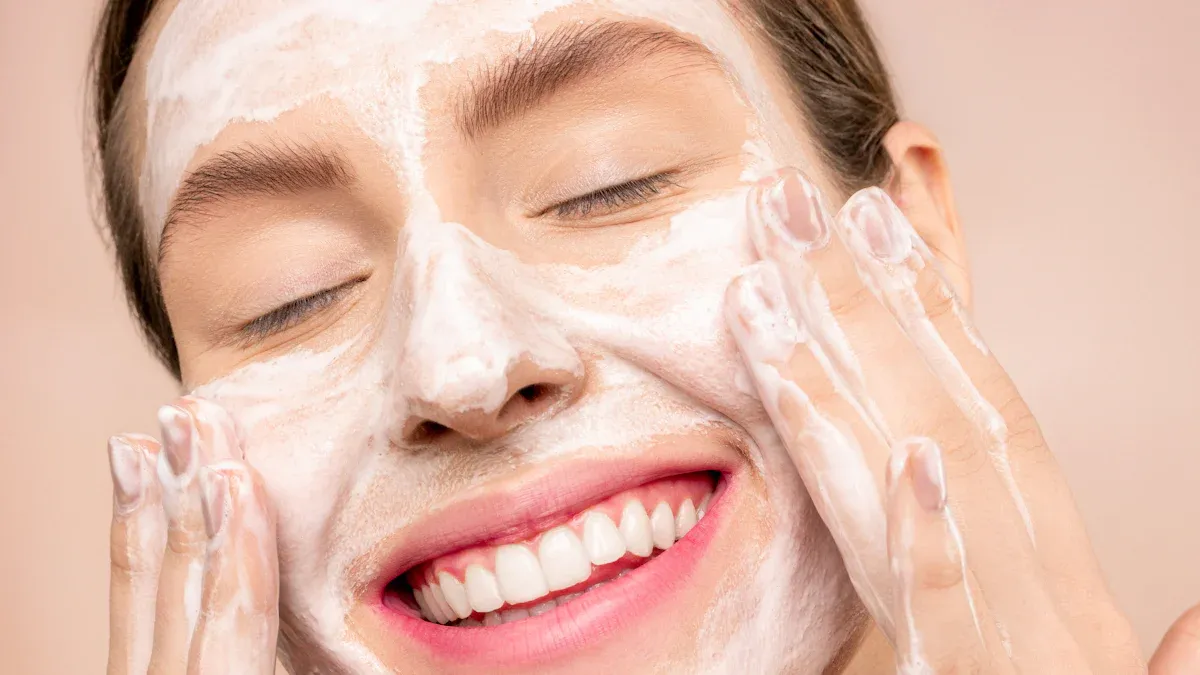
Fewer Products, Better Results
Have you ever felt overwhelmed by the sheer number of products in your skincare routine? You’re not alone. The truth is, using fewer products often leads to better results. When you pile on multiple creams, serums, and toners, your skin can become irritated or inflamed. Studies show that a simplified routine with just the essentials—like a gentle cleanser, moisturizer, and sunscreen—can work wonders.
Overloading your skin with products can disrupt its natural balance.
Many items, such as eye creams and toners, are unnecessary and can be skipped.
A minimalist approach helps your skin absorb nutrients more effectively.
By cutting back, you’re not only saving time but also giving your skin the chance to thrive. Less really is more when it comes to achieving the best skin care results.
Supporting Skin’s Natural Healing and Protection
Your skin is amazing. It has its own natural healing and protective mechanisms, but overcomplicating your routine can interfere with these processes. When you switch to a simple routine with natural ingredients, your skin gets the support it needs to repair itself.
“I noticed my acne and scars fading after I simplified my skincare routine,” shared one individual in a recent study.
Natural products, like aloe vera or jojoba oil, clean, heal, and moisturize without overwhelming your skin. This approach not only enhances your skin’s natural barrier but also reduces issues like redness and breakouts. By keeping things simple, you’re helping your skin do what it does best—protect and heal itself.
Avoiding Harsh Chemicals and Irritants
Have you ever checked the ingredient list on your skincare products? Many contain harsh chemicals like parabens, phthalates, and artificial fragrances. These can disrupt your hormones, irritate your skin, and even pose long-term health risks.
Phthalates and parabens are linked to reproductive health issues.
Fragrances often hide harmful chemicals that can cause irritation.
Formaldehyde, found in some treatments, is a known carcinogen.
Switching to a minimalist routine with fewer, safer products reduces your exposure to these harmful substances. Look for items with natural ingredients to keep your skin healthy and glowing. Remember, simple skin care is best—not just for your skin but for your overall well-being.
The Best Skin Care Routine for Simplicity
AM Routine: Cleanse, Hydrate, Protect
Your morning routine sets the tone for your skin’s health throughout the day. A simple daily routine with just three steps—cleansing, hydrating, and protecting—can work wonders. Start by using a gentle cleanser to remove any oil or sweat that built up overnight. This helps create a clean canvas for the next steps.
Next, apply a lightweight moisturizer to keep your skin hydrated. Even if your skin feels oily, don’t skip this step. Hydration is key to maintaining your skin’s natural barrier. Finally, finish with sunscreen. Dermatologists emphasize that sunscreen is the most important part of any morning routine. It shields your skin from harmful UV rays, which can cause premature aging and increase the risk of skin cancer.
Tip: Choose a broad-spectrum sunscreen with at least SPF 30 and reapply it throughout the day for maximum protection.
A survey revealed that only 51% of people use sunscreen daily. By making it a habit, you’re already ahead in your skincare game. Remember, consistency is more important than using a variety of expensive products.
PM Routine: Cleanse, Nourish, Repair
Your nighttime routine is all about giving your skin the care it needs to recover and repair. Start by cleansing your face to remove makeup, dirt, and pollutants that accumulate during the day. This step is crucial for preventing clogged pores and breakouts.
After cleansing, focus on nourishing your skin. Use a product with ingredients like hyaluronic acid or niacinamide to replenish moisture and support your skin’s natural healing process. Finally, apply a repairing treatment, such as a retinol or peptide-based cream, to target specific concerns like fine lines or uneven texture.
A simplified nighttime routine like this is more effective than overwhelming your skin with too many products. It allows your skin to breathe and focus on essential care, leading to noticeable improvements over time.
Note: Avoid harsh exfoliants or multiple active ingredients in one routine. They can irritate your skin and disrupt its natural balance.
Adjusting for Skin Types: Dry, Oily, Combination, and Sensitive
Not all skin is the same, so it’s important to tailor your routine to your specific needs. Here’s how you can adjust:
Dry Skin: Use a creamy cleanser and a rich moisturizer. Look for ingredients like ceramides and shea butter to lock in hydration.
Oily Skin: Opt for a gel-based cleanser and a lightweight, oil-free moisturizer. Products with salicylic acid can help control excess oil.
Combination Skin: Balance is key. Use a gentle cleanser and a moisturizer that hydrates without feeling heavy. Focus on treating oily areas with targeted products.
Sensitive Skin: Stick to fragrance-free and hypoallergenic products. Look for calming ingredients like aloe vera or chamomile to soothe irritation.
Pro Tip: Always patch-test new products before adding them to your routine. This helps you avoid unwanted reactions.
By following a targeted skincare regimen that suits your skin type, you can achieve healthier, glowing skin without overcomplicating your routine.
Ethical and Sustainable Skin Care Practices

Choosing Eco-Friendly and Minimalist Products
Switching to eco-friendly and minimalist skincare products is one of the easiest ways to care for your skin and the planet. Many natural ingredients, like aloe vera, jojoba oil, and shea butter, not only nourish your skin but also have a smaller environmental footprint. These ingredients are biodegradable and sustainably sourced, making them a win-win for you and the Earth.
The beauty industry produces 120 billion units of cosmetic packaging annually, with 95% ending up as waste. By choosing products with recyclable or biodegradable packaging, you can help reduce this staggering amount of plastic pollution. DIY skincare solutions are another great option. They let you customize treatments while cutting down on packaging waste.
Tip: Look for brands that prioritize sustainability and use minimal packaging. Your choices can make a big difference!
Reducing Waste with Refillable and Multi-Use Items
Refillable and multi-use skincare products are game-changers for reducing waste. Imagine buying a product once and simply refilling it when needed. This approach significantly cuts down on single-use packaging. Studies show that customers need to repurchase an item five times for meaningful waste reduction, so consistency is key.
Multi-use products, like a moisturizer that doubles as a sunscreen, simplify your routine while reducing the number of items you buy. This not only saves you money but also minimizes waste. However, keep in mind that most refillable units require three to four orders to balance costs with original packaging.
Product Type |
Benefit |
|---|---|
Refillable moisturizers |
Reduce plastic waste and save money over time. |
Multi-use balms |
Serve multiple purposes, like hydration and protection, in one product. |
Supporting Ethical and Transparent Brands
Choosing ethical and transparent brands builds trust and ensures you’re using high-quality products. Brands that disclose their ingredient sourcing and maintain clear labeling show their commitment to sustainability. Certifications, like cruelty-free or fair-trade labels, further demonstrate a brand’s dedication to ethical practices.
Consumers are increasingly favoring brands that promote eco-conscious behavior. In fact, 81% of people believe companies should reduce plastic packaging, and 63% look for natural ingredients that benefit both skin and the planet. Supporting these brands not only helps the environment but also encourages the industry to adopt better practices.
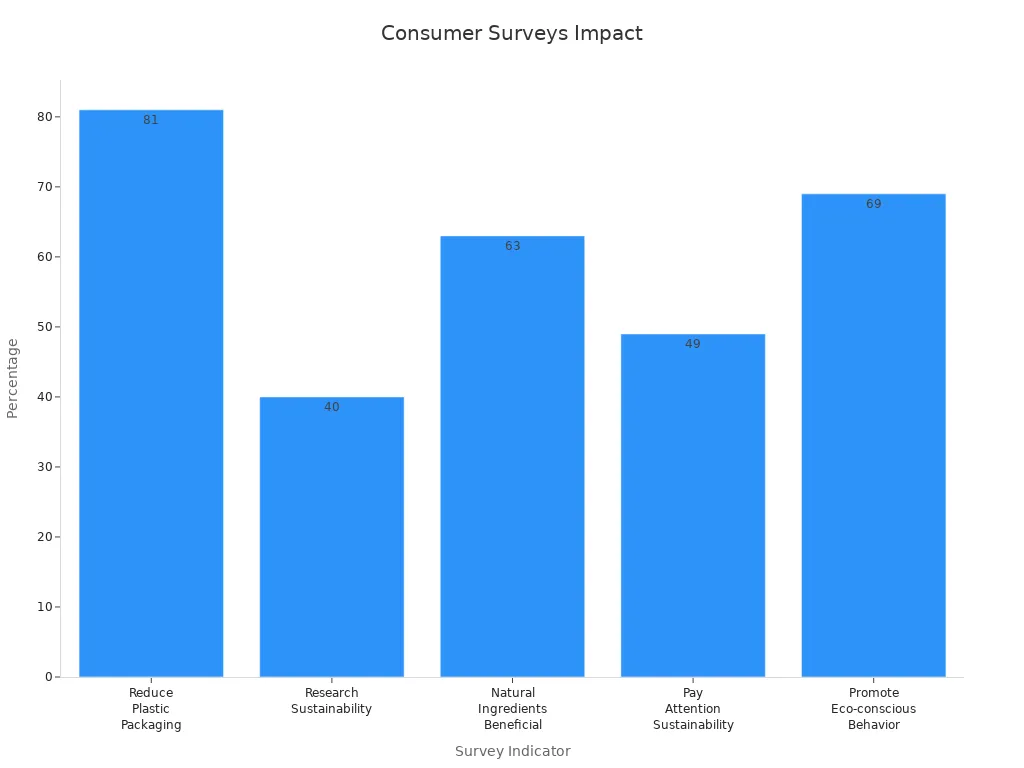
Note: When you support ethical brands, you’re not just buying a product—you’re investing in a better future for the planet.
Simple skin care is best when it comes to achieving healthy, glowing skin. By sticking to a streamlined morning routine and nighttime routine, you can save time, reduce stress, and let your skin thrive. Embracing a minimalist approach benefits not just your skin but also the environment. Start small, stay consistent, and trust the process. You’ve got this!
FAQ
How do I know if my skin care routine is too complicated?
If your skin feels irritated, dry, or oily, it’s a sign you’re overdoing it. Stick to three essential steps: cleanse, hydrate, and protect.
Can I skip sunscreen if I’m indoors all day?
Nope! UV rays can penetrate windows. Use sunscreen daily to protect your skin from aging and damage. 🌞
What’s the best way to test new products?
Patch-test on your wrist or behind your ear. Wait 24 hours to check for irritation before applying it to your face.
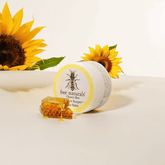

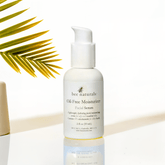

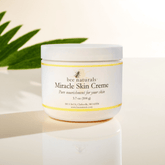


Leave a comment
Please note, comments need to be approved before they are published.